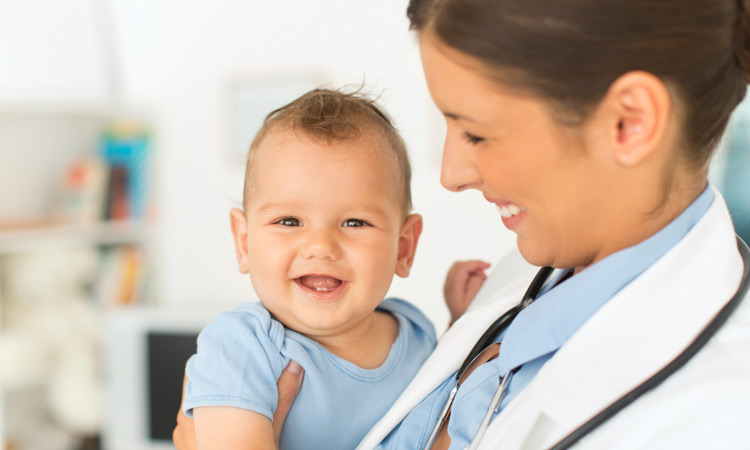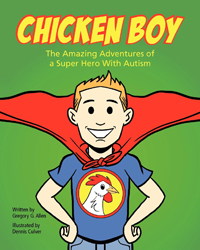 You’ve probably heard the controversy surrounding autism and vaccines. You’ve seen campaigns and blogs about the subject. While many people are well versed on both sides of the issue, plenty of people know precious little about even the basics, such as what autism is and how vaccines work.
You’ve probably heard the controversy surrounding autism and vaccines. You’ve seen campaigns and blogs about the subject. While many people are well versed on both sides of the issue, plenty of people know precious little about even the basics, such as what autism is and how vaccines work.
Basic Definitions
Autism is a developmental disability that comes from differences in the way the brain functions. Autism is also known as Autism Spectrum Disorder (ASD) and usually shows up early in childhood. Individuals on the spectrum exhibit different ways of communicating, learning, behaving, and interacting with others. The spectrum extends to extremely autistic children, to teens with sensory processing differences and some features of autism, to adult Asperger’s Syndrome in varieties ranging from mild to severe, and any number of other variations. Professionals, parents, and researchers debate what causes autism, disagreeing vehemently about whether the disability originates from gene differences, vaccines, or other environmental factors.
A vaccine is a preparation typically administered by injection that helps an individual to acquire immunity to a disease-causing microorganism. Usually, a weakened or dead virus is injected into the person to encourage the immune system to notice, destroy, and then memorize the viral agent, which helps prevent future occurrences.
What Do Parents Say
Much debate centers on vaccines and autism. Many parents and advocates suspect that vaccines, especially the number of vaccines and chemical makeup of those vaccines (including preservatives like Thimerosal), cause ASD. They point to the fact that autism symptoms seem to show up right around the time when a child receives his or her first set of immunizations. The belief is that their children are “normal,” they go in for the suggested set of vaccinations, and are never the same and eventually are diagnosed with autism. As a result, many parents refuse or resist getting their children vaccinated.
One parent admits, “My fears were a product of a potentially lethal combination of maternal panic and youthful ignorance. I was afraid. I was afraid of autism, of chemicals, of pharmaceutical companies, of pills, of needles.”
What Does Science Say
The science regarding any link between autism and vaccines is clear. A study by the CDC conducted in 2013 concluded “…that vaccines do not cause ASD. The study looked at the number of antigens (substances in vaccines that cause the body’s immune system to produce disease-fighting antibodies) from vaccines during the first two years of life. The results showed that the total amount of antigen from vaccines received was the same between children with ASD and those that did not have ASD.” This study showed no grey area. It was conclusive. Vaccines do not cause autism.
In fact, an earlier study in 2004 had already come to the same conclusion, unequivocally stating, “…the evidence favors rejection of a causal relationship between thimerosal–containing vaccines and autism.”
The debate might continue, thriving on fear and ignorance, but the science is clear.
What We Know For Sure About Autism And Vaccines
Fear is often more contagious than most viruses, and the cure is education. Awareness comes in the form of spreading information about the safety of vaccines and about the experience of autistic individuals.
Awareness campaigns promote understanding. For instance, April is Autism Awareness Month. Autism Speaks created Light It Up Blue, which encourages accurate information, education, and support for Autism.
 Something as simple as a children’s promotes early learning about brain differences and neurological challenges. One such book, Chicken Boy: The Amazing Adventures of a Super Hero with Autism, educates children about what it feels like to be neuroatypical and what it means to befriend people who are different from you.
Something as simple as a children’s promotes early learning about brain differences and neurological challenges. One such book, Chicken Boy: The Amazing Adventures of a Super Hero with Autism, educates children about what it feels like to be neuroatypical and what it means to befriend people who are different from you.
Vaccines save lives. Knowing the truth and spreading awareness can make a difference. Medical reporter Liz Szabo reminds us: “Before the measles vaccine became available in 1963, the virus infected about 500,000 Americans a year, causing 500 deaths and 48,000 hospitalizations. In recent years, the number of diagnoses fell to around 60 to 65, mostly in isolated travelers arriving in the USA.” Vaccines aren’t causing problems; they’re solving them.
As Hippocrates said, “There are in fact two things, science and opinion; the former begets knowledge, the latter ignorance.”


